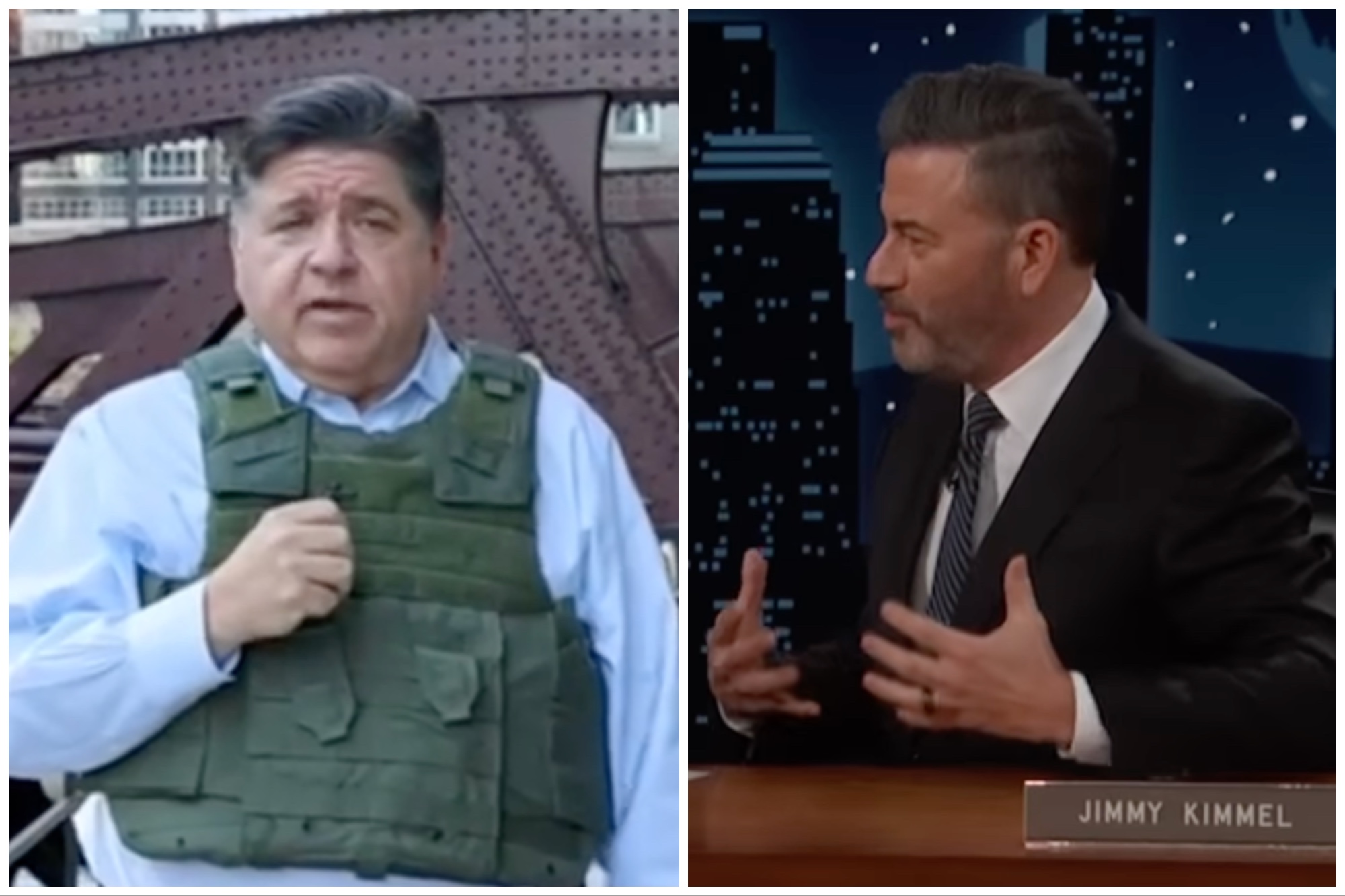CHICAGO — Federal immigration agents who aren’t working undercover are now required to have visible identification anytime they’re on the job in Chicago and surrounding areas — including when they’re making arrests or responding to protests — under a ruling issued by a federal judge Thursday.
The measure is part of a temporary injunction granted by U.S. District Judge Sara Ellis, who ordered the federal Department of Homeland Security and agencies under it to adhere to a list of rules meant to protect constitutional rights during immigration enforcement in and around Chicago.
Block Club Chicago and other organizations sought the injunction through a lawsuit filed earlier this week. The suit seeks to bar federal agents from using excessive force against members of the media along with peaceful protesters and others engaging in protected activities.
In granting the injunction, Ellis said federal agents must now wear badges with identifying information — “unique, recognizable alpha-numeric” identification — on their uniform or helmet, including when wearing riot gear. She did make an exception for those federal law enforcement officers who work undercover or do not typically wear a uniform, according to her order.
The injunction, which is effective immediately, applies for at least the next 14 days to agents with the Department of Homeland Security, Immigration and Customs Enforcement, Customs and Border Patrol, and other agencies working in the federal court system’s Northern District of Illinois, which covers 18 counties, including Cook.
Ellis also ruled that agents are now barred from using riot-control weapons like pepper-spray bullets and tear gas against peaceful journalists and protesters. She banned them from arresting journalists and others who are not posing an immediate threat to the safety of law enforcement.
Department of Homeland Security officials didn’t immediately respond to questions about the ruling.
Advocates say requiring federal agents to wear badges and display identification is a step toward accountability amid President Donald Trump’s immigration “blitz,” which has brought hundreds of federal agents to the region and led to the arrests of at least 1,000 people, many seemingly made without warrants in violation of a federal consent decree.
Federal agents have been concealing their identities and hiding from public scrutiny by wearing masks and hats without badges or name tags. Some have also traveled in unmarked cars without license plates, according to the Sun-Times. Without revealing who they are, agents have arrested, detained and departed scores of people in the Chicago area.
This has created high levels of anxiety and outrage among immigrant families across Chicago, with many parents fearful of even dropping off their kids at school, said community organizer Leonardo Quintero, who has publicly demanded greater transparency from ICE agents.
“It’s a fear tactic; it’s a tactic that’s used to normalize state violence through threat,” said Quintero, who serves as the 12th Police District council chair. “If you don’t know who is doing something to you, you don’t know how you’re supposed to protect yourself.”
In an interview with Block Club this week, Russell Hott, ICE’s field director in Chicago, defended the practice of letting agents remain anonymous, saying it’s for their “safety and security,” as some have been tracked down to their home addresses, threatened and assaulted. He did not provide examples.
But legal experts, advocates and elected officials have decried the absence of transparency.
“The masks, the lack of identification, the people often not in uniform — I think it adds to the feeling that this is not being done in an appropriate and a lawful way; it adds to the feeling that this is being done to intimidate, rather than to enforce the rule of law,” said Noah Smith-Drelich, Chicago-Kent College of Law professor.
Advocates said while the injunction may offer more transparency, Chicagoans should continue to document enforcement in their neighborhoods and look out for their neighbors.
“Wearing visible identification does not stop the psychological violence that ICE and other federal agencies are inflicting on Chicago area communities every day,” Brandon Lee, communications director for the Illinois Coalition for Immigrant and Refugee Rights, said in a written statement.
“There remains no avenue for accountability even with visible identification, especially as ICE agents continue to go rogue and act lawlessly with the encouragement of President Trump” and other federal officials.
Block Club is one of the plaintiffs in the lawsuit, along with the Chicago Headline Club, the Illinois Press Association, the Chicago Newspaper Guild Local 34071, The National Association of Broadcast Employees & Technicians and Communication Workers of America local 54041, and independent journalists and protesters. The groups are represented pro-bono by attorneys with Loevy & Loevy, the ACLU of Illinois and other firms. Read the full complaint here.
Listen to the Block Club Chicago podcast:


